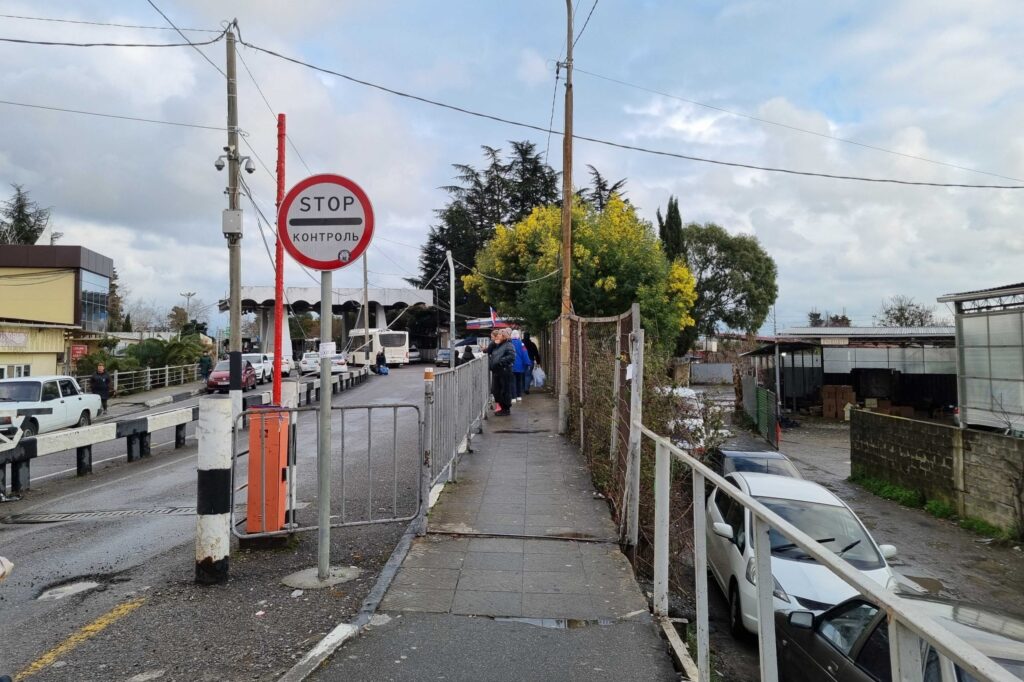The government in Abkhazia has announced plans to combat ‘anti-Russian sentiments’, raising fears of a crackdown on free speech.
At a meeting on Monday, Foreign Minister Inal Ardzinba and State Security Service head Robert Kiut discussed what they said were deliberate attempts by ‘external hostile forces’ to provoke anti-Russian sentiments in Abkhazia.
A subsequent press briefing from the Interior Ministry described this as a ‘direct threat to [Abkhazia’s] statehood’.
Kiut announced that the authorities would take ‘harsh measures’, but did not detail what those measures might be.
The announcement prompted indignation amongst journalists, bloggers, public figures, and the opposition in Abkhazia, who raised fears that any legislation was unnecessary, and could be used to stifle criticism of the government or was aimed at distracting the public.
The initiative has received little if any public endorsement.
‘If I criticise the government, am I anti-Russian?’
Since the announcement, discussions of who the new initiative was targeting have been widespread.
Some have suggested the move was aimed specifically at the Hara H-Pitsunda youth group, which has been protesting the proposed transfer of the Pitsunda state dacha to Russia since September 2022.
The group has since broadened their criticism towards other government actions they see as contributing to Abkhazia’s international isolation.
[Read on OC Media: International Geneva delegation banned from entering Abkhazia]
Popular blogger Tengiz Dzhopua was among those suggesting the move could be used to target government critics more broadly.
‘If I am worried about the energy crisis in the country and worried about our dependency, sitting on the back of the Russian taxpayer — am I an anti-Russian element?’, he asked.
Others have suggested it was a substitute for a law on foreign agents analogous to that of Russia. The Russian law has been widely used to suppress the media and civil society. Abkhazia’s government has so far failed to introduce a foreign agent bill to parliament, despite requesting that MPs develop it.
Shortly after the announcement by the Foreign Ministry, a group of opposition-aligned public figures and organisations published a statement in which they said it was ‘unacceptable’ to label people anti-Russian because they expressed opinions on issues like the Pitsunda deal, or attempts to privatise the energy system.
They also called into question the very existence of anti-Russian sentiments in Abkhazia. They demanded the government provide ‘detailed explanations’ of what they meant, including a list of Western intelligence services trying to ‘exert influence in Abkhazia’ and the names of those who were allegedly working for them.
‘The most pro-Russian country in the world’
Many in Abkhazia took issue with the premise of the announcement.
Opposition leader and former minister of the economy Adgur Ardzinba alleged that any anti-Russian sentiment in Abkhazia was attributable to President Aslan Bzhaniya.
‘[He] travels around the regions and draws connections between the transfer of the Pitsunda state dacha and Russia’s military presence in Abkhazia and financial assistance.’
‘No one else over the past 30 years has caused such damage to Abkhaz-Russian relations as the incumbent president in less than three years’.
Former Deputy Foreign Minister Zurab Smyr similarly queried the basis on which the statement was made.
‘What kind of anti-Russian sentiments are we talking about when Abkhazia is the most pro-Russian country in the world?’, he asked.
He added that despite Russians making up only 9% of the population and Abkhazian being the state language, most of public life, including in education and politics was conducted in Russian.
‘All sessions of the Parliament and the Cabinet of Ministers are held in Russian, while Abkhazians make up 95% of those attending the sessions’, Smyr said. ‘Are my statements also anti-Russian?’
Even Temur Nadaraya, a former head of Gali (Gal) who is usually outspoken in his criticism of the West, was cautious in his assessment.
While claiming it was ‘impossible not to notice anti-Russian sentiment’ since the Russian Invasion of Ukraine, citing countries like Poland and Czechia, he abstained from outright endorsing the announced measures.
‘Of course, there is a danger that any criticism could be perceived as anti-Russian’, he conceded. ‘But I don’t think that will happen’, he wrote on Facebook.
The question of what the move meant for Abkhazia’s sovereignty and independence was raised by many, including Akhra Bzhaniya, a former MP and co-founder of the Akhyatsa public organisation.
‘If you are tired of the [border] sign at Psou, [Abkhazia’s border crossing point with Russia] just say so — you are tired of independence, the Constitution, the unconditional protection of your citizens. This is just too much’.
For ease of reading, we choose not to use qualifiers such as ‘de facto’, ‘unrecognised’, or ‘partially recognised’ when discussing institutions or political positions within Abkhazia, Nagorno-Karabakh, and South Ossetia. This does not imply a position on their status.




 9 February 2023
9 February 2023



